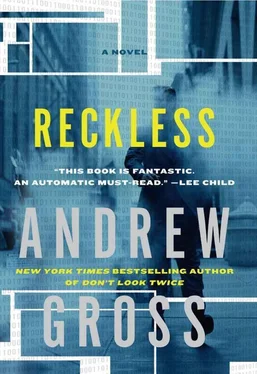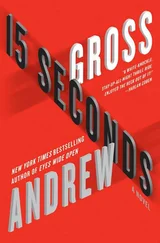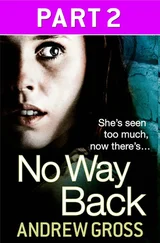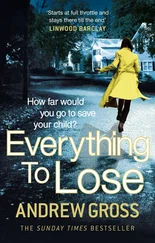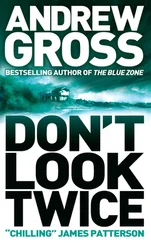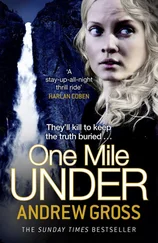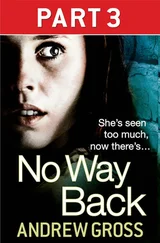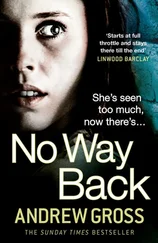The plan, as she mapped it out, was first to simply see if they could locate him. The next step would be determined then. They might try to bargain with him. Use the threat of turning him over to the Serbian government to be prosecuted for war crimes as leverage.
Then there was always the next option, which Naomi didn’t seem inclined to talk about. This was a U.S. government action. The stakes were high. This was looked at as a Homeland Security issue. Thibault was a vital person of interest. There were professionals who could be brought in-to interrogate him or to whisk him surreptitiously out of the country.
But the first step was to see if he was even there.
Upon landing, they passed through immigration on a diplomatic visa. They registered their firearms. Hauck was surprised and impressed that Naomi even carried one. They got their bags and rented a midsize Ford diesel. They got directions to the central highway south, the E75; plugged their hotel, the Vrbak in Novi Pazar, into the GPS; and drove past the industrial areas that ringed the city, into the flat Balkan countryside, which became picturesque green hills and small, rustic villages for the three-hour drive.
Hauck took the wheel, excitement fending off the jet lag. He prayed his instincts were right and that he hadn’t dragged both of them on a senseless wild-goose chase. But Naomi (and her superiors) agreed it was worth the bet. They got to know each other a little along the way. “Hauck” and “Agent Blum” turned into “Ty” and “Naomi.” She told him how she had first gotten involved in working for the Treasury. How she had started out studying music at Princeton.
“Music theory,” she said, noticing his surprise, but brushed past it so as not to bore him. “Sort of academic stuff.”
She told him how her brother had enlisted out of college after 9/11 and then had the training accident that had cost him his legs. She told him how she felt compelled to follow in his steps. How she had ended up in the investigative corps, worked the Nisoor Square and Tabitha shooting incidents, which ended up as army whitewashes. Fighting off sleep, she shared the story of how one of the convoys she had been riding in had been ambushed, a small child by the side of the road struck by shrapnel from the IED. How with small-arms fire raging all around, she had crawled over and had to bag the kid with a makeshift ventilator while the medics attended to their own. She told him how fire was whizzing back and forth pretty heavily, how she didn’t know if she was going to be hit. “I just blew and blew into the kid’s chest, everything going on around me, until reinforcements finally came, and then I stopped, sitting there on the dusty road, his blood all over me. I realized he had died.
“His name was Ahmed. He had this Michael Jackson T-shirt on.” Naomi shrugged. “I’m not sure why I’m telling you this.”
“You did what you could,” Hauck replied, watching her gaze drift out the window. “What you did was brave. You can’t ask for more.”
“No.” She shook her head. “I’m not into any more whitewashes, Ty; you understand that. You can always do more.” Then, switching subjects, she said, “What do you think, we have maybe another two hours?”
Sixty kilometers south, they crossed back west, onto more local roads, cutting through steeper, mountainous valleys and through centuries-old hillside towns. The roofs were always red and clung to the slopes, the churches old and stone with Serbian Orthodox markings, and old men in caps towed goats or cattle out of the way of young people scooting by on mopeds. The local signs were generally in Serbian, but Hauck always recognized a “taverna” by its signs for Jemel beer, Pepsi, and Jugopetrol.
It was around three in the afternoon when they finally made it to the outskirts of Novi Pazar. It was a larger commercial center of red roofs and white stucco houses clustered in the pit of a green, sloping valley. Spring flowers were just starting to bloom. The city was built on both sides of the narrow Raska River. Hauck got off and followed the GPS through narrow boulevards crowded with modern stores and Western brands to the city center. They were staying at the Vrbak, a drab four-story hotel, built in a style somewhere between quaint and industrial, that was probably the best in town. It straddled both sides of the flowing river.
It was late afternoon by the time they reached the hotel and settled into adjoining rooms on the fourth floor. Too late to do anything. Hauck asked if she wanted to meet later for dinner.
Naomi wasn’t sure if she was up to it. “I may just hang and make some calls, if that’s okay.”
“Sure, that’s fine.”
He went inside. Hauck’s room was sixties modern and spartan, a minimalist style. It had a flat teak platform bed and a down bedspread with a matching teak desk and chair. Drab local art hung on the walls.
He went to the window and opened the curtains. The red roofs of the town sprawled out, and in the distance there were green, rolling hills. Everything was quaint and friendly, but fifteen years ago, in this town set near the Kosovar border, the tensions between the Serbs and Muslims would have been running high.
Every family might have had a Dani Thibault in it. And would do whatever they could to protect him.
He looked out at the hills in the gray, dissolving light. He felt wired, too wound up to rest. Maybe he’d go for a run, try to locate the AstraBanca, which was near the city center. Or find the address they had for Maria Radisovic.
His blood rushed with anticipation, like the river running below.
He felt something, something in himself he recognized, like a familiar face. Something he hadn’t felt in months.
Alive.
The next day Hauck was having breakfast around seven in the dining room overlooking the river when Naomi came in, in a tight tank and black running leggings, sweaty from a run.
“Hey.” Hauck pushed out a chair for her. “I knocked on your door.”
“Morning,” Naomi said, taking a seat. “I was up. Went out for an early run.”
“You sleep okay?”
“A little restless,” she admitted. She shook out her short ponytail. “I was up in the night doing some work.” She took out a city map from a fanny pack and unfolded it. “I checked out Market Street. Where the AstraBanca branch is. Then I was wired. I figured what the hell. I kept on going to Zinak Street.” Maria Radisovic’s street.
“Small apartment house. Interior courtyard. Butcher across the street.”
Naomi widened her eyes.
Hauck grinned. “I did the same route last night. Pretty good distance.” He nodded admiringly. “Four miles.”
“Usually get in six,” Naomi snapped defensively, as if trying not to be outdone.
Hauck couldn’t help but notice that she looked pretty tight in her heather-gray T-back Under Armour top. On her right shoulder he spotted a small tattoo. A sword with a lightning bolt running through it. Underneath, the initial “J.”
The logo of her brother’s unit-the Special Forces Airborne.
Music theory… Hauck laughed to himself. No telling how tough this gal is.
“C’mon, have something to eat,” he said, prodding her. “It’s going to be a long day. My tab.”
“Accepted.” Naomi smiled. She dropped an orange file on the tablecloth.
A waitress came up and Naomi ordered a yogurt and some cereal. “I printed out some e-mails I received during the night. You want to hear?”
Hauck nodded. “Of course.”
“I have people trying to trace the history of the money going in and out of Thibault’s bank accounts. The payments to James Donovan’s Cayman Islands account came from something called the VRV Development Trust. It was a payment for a real estate sale on a property Donovan had bought just thirty days before on the island of Antigua. Three weeks later he flipped it-to VRV-for five times the price.”
Читать дальше
Конец ознакомительного отрывка
Купить книгу
